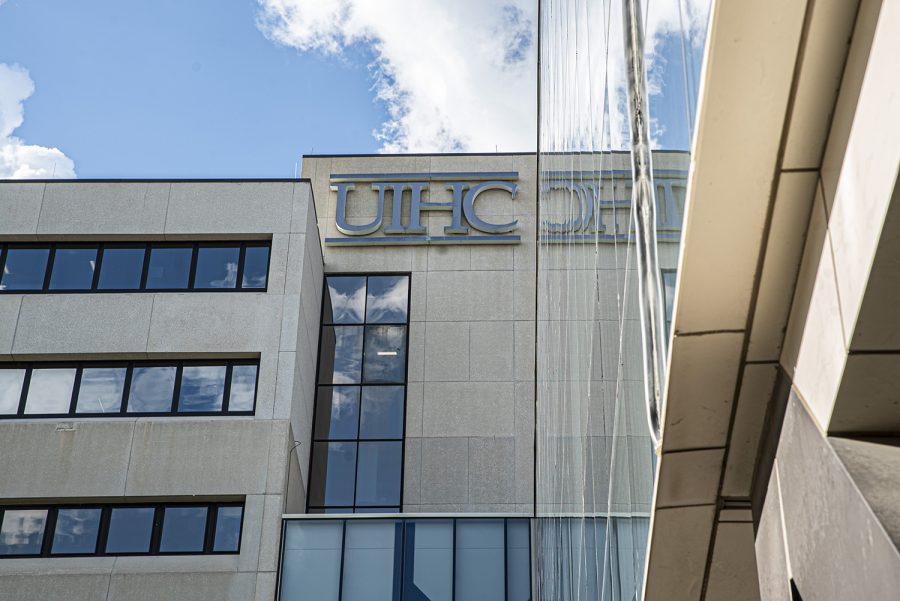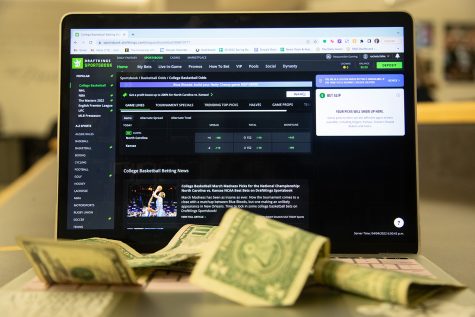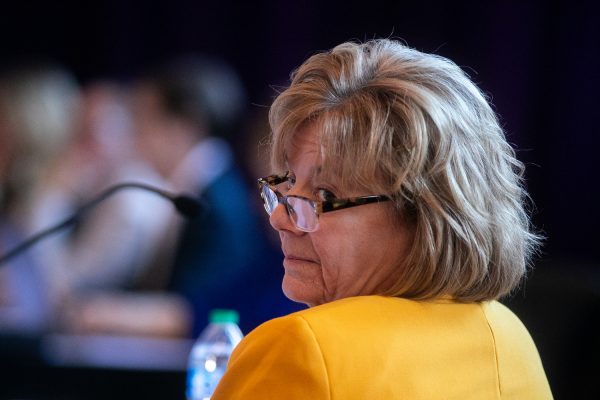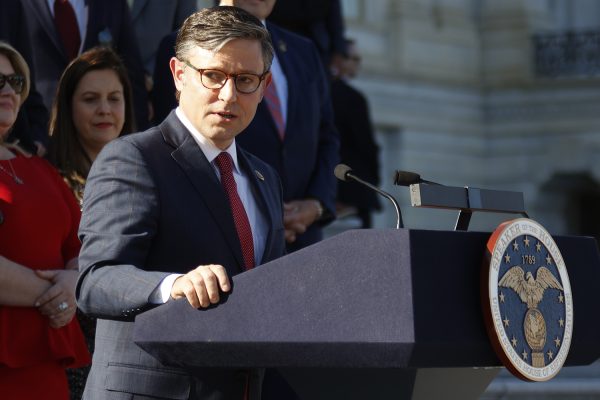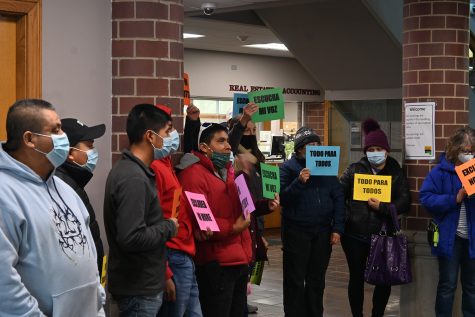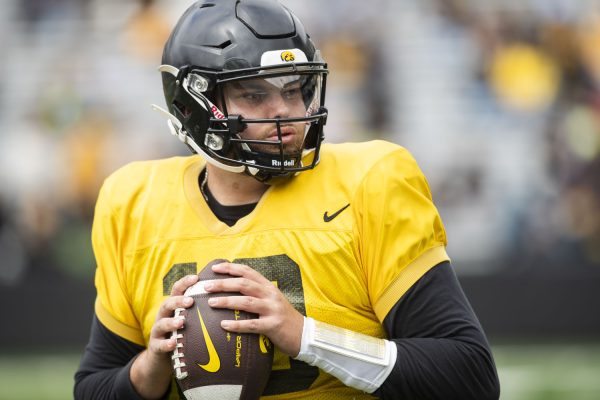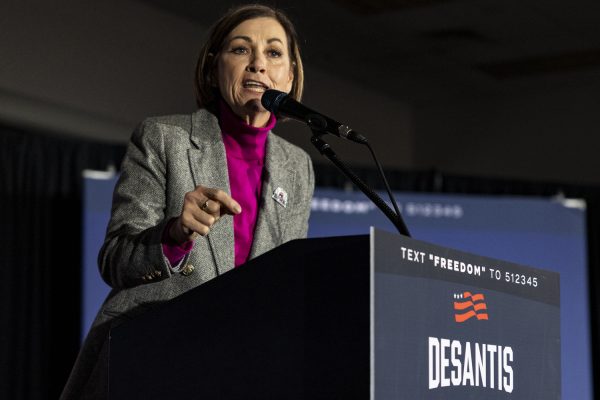UIHC ‘under stress,’ leaders call for community COVID-19 compliance
University of Iowa Hospitals and Clinic’s CEO says a surge of omicron cases in Iowa has backlogged University of Iowa Health Care workers, delaying treatments for non-COVID health care needs.
University of Iowa Hospitals and Clinics as seen on Tuesday, June 23, 2020.
January 13, 2022
The rise of the omicron variant in Iowa has backlogged University of Iowa Hospitals and Clinics workers and caused them to modify and delay regular treatments.
Suresh Gunasekaran, UIHC CEO, said the high levels of omicron infection among Iowa citizens and health care workers has contributed to a lack of workforce resources.
Gunasekaran said people are still able to get treated for things other than COVID-19, just not as promptly.
“We continue to see rising numbers of infected Iowans that are causing health care to be modified and delayed as we have to shift our operations to take care of COVID-19 patients both in an outpatient setting and in an inpatient setting,” he said.
Gunasekaran urged Iowans to get the vaccine and their booster shot, which he called “the first line of defense,” against COVID-19, as well as to wear medical-grade masks and social distance over the next four to six weeks as omicron spikes.
“What we see is that the entire health care system is under stress, and we wanted to make sure today to let the public know that we apologize that this is the situation we find ourselves in,” he said.
Johnson County has had a 29.3 percent positive test rate in the last seven days, while the state of Iowa has recorded a 23.8 percent positive rate, according to the state’s COVID-19 website.
According to UIHC data, there are 65 COVID-19 positive patients in the hospital as of Thursday.
The rate of hospitalization and death is less for vaccinated people who have contracted COVID-19 than unvaccinated people, Gunasekaran said.
“We think that we’re in a critical moment here in Iowa over the next four weeks relative to the omicron variant and the surge related to it in the state,” he said. “We know that if we can recommit ourselves during this period of time that we can significantly help avoid overwhelming the health care system.”
Gunasekaran said he thinks that by convincing Iowans to adhere to safety standards and vaccine compliance, Iowans seeking regular health care will more easily have access to needed treatments.
As University of Iowa students return to campus after winter break, Gunasekaran said UIHC is more prepared than they were during previous population influxes, and has a collaborative team prepared to offer masks and resources and testing information to returning students.
“If we make the right decisions, and everyone makes a little personal sacrifice in terms of what they’re willing to do, we really think the peak won’t be as high and perhaps won’t last as long, so we can get back to the normal work of health care here in Iowa,” Gunasekaran said.



